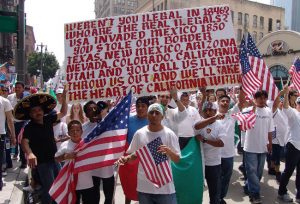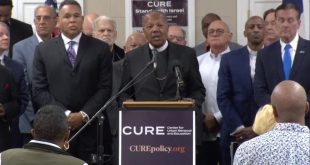 The mere discussion of erecting a stronger physical wall on the southern border was enough to make some illegal aliens and “refugees” leave the country or decline to come in the first place.
The mere discussion of erecting a stronger physical wall on the southern border was enough to make some illegal aliens and “refugees” leave the country or decline to come in the first place.
How much more of an impact would an actual wall have?
The Washington Times reported that with the addition of border fences and border enforcement agents, which began under President George Bush, the city of Yuma in Arizona has seen fewer crossings and arrests.
An excerpt (emphases added):
The number of illegal immigrants arrested — a rough yardstick for the overall flow — has dropped by a staggering 90 percent in the Border Patrol’s Yuma Sector. They no longer see “banzai runs” of hundreds of migrants breaking across the border, property crimes are down, the number of migrants found dead while attempting the crossing is down — and so are assaults on Border Patrol agents, which have fallen from 37 in 2005 down to just seven last year.
“It was like somebody flipped a switch to us. It went from chaos to a controlled border,” Yuma County Sheriff’s Department Capt. Eben Bratcher told The Washington Times during a visit to the region earlier this year.
Mr. Trump is calling for another round of spending, looking to duplicate Yuma’s success in other communities that are suffering a new spate of illegal immigration. Yet he’s meeting resistance from many of the same lawmakers who were willing to assist Mr. Bush.
As the Washington Times notes, Democrats supported Bush’s efforts to curb illegal immigration. With President Donald Trump, they resist, which makes a reasonable person suspect liberal lawmakers care more about hating the president than doing what’s best for America — enforcing the law and its law-abiding citizens.
Photo credit: By Jonathan McIntosh – Own work, CC BY 2.5, Link
 CURE News and Clergy Blog News and Commentary for Christians
CURE News and Clergy Blog News and Commentary for Christians



